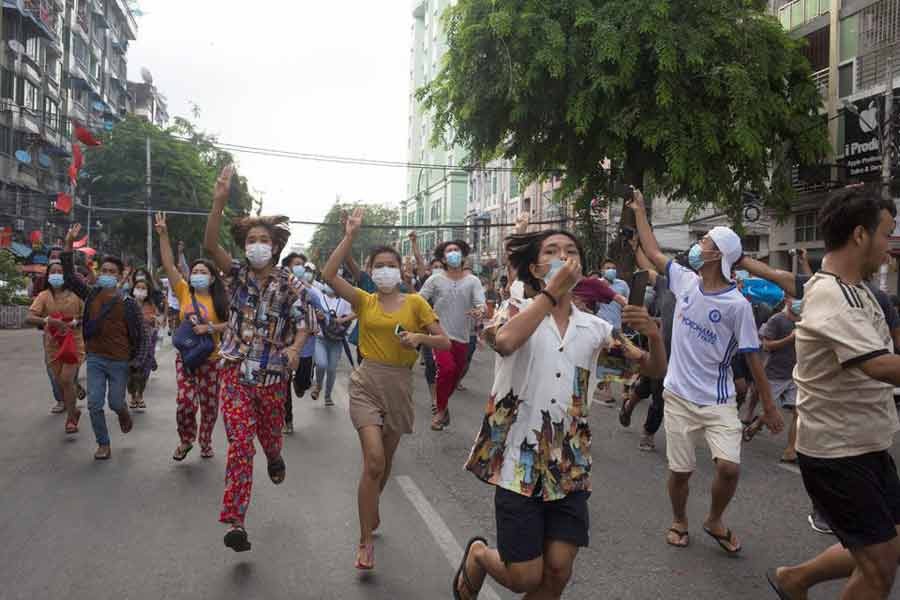At least 20 people were killed by Myanmar's security forces in the Ayeyarwady river delta region on Saturday after villagers armed with catapults and crossbows fought back against troops searching for weapons, local media and residents said.
That would make it the heaviest civilian death toll in nearly two months. Some 845 people had previously been killed by the army and police since the Feb. 1 coup, according to an activist group. The junta has disputed that figure.
The information was not verified independently as a junta spokesman was not available on Saturday for comment on the violence at Hlayswe village in Kyonpyaw township in the Ayeyarwady Region.
The army has struggled to impose control since it overthrew elected leader Aug San Suu Kyi after a decade of democratic reforms had opened up the once-isolated Southeast Asian state.
Clashes broke out before dawn on Saturday at Hlayswe, some 150 km (100 miles) northwest of the main city of Yangon, when soldiers said they had come to search for weapons, at least four local media outlets and a resident said.
"The people in the village only have crossbows and there are a lot of casualties on the people's side," said the resident, who asked not to be identified for fear of retribution.
Khit Thit Media and the Delta News Agency said 20 civilians had been killed and more wounded. They said villagers had tried to fight back with catapults after soldiers assaulted villagers in what they said was a search for arms.
It was some of the worst violence since the coup in the Ayeyarwady region, an important rice growing area that has large populations of both the Bamar majority ethnic group, from which much of the army is drawn, and the Karen minority.
ETHNIC ARMIES
Saturday's civilian death toll appeared to be the highest since more than 80 people were reported killed in the town of Bago in early April.
Since the coup, conflicts have flared in the borderlands where some two dozen ethnic armies have been waging insurgencies for decades. The junta has also been faced with daily protests and paralysing strikes.
The anti-junta Shwegu People's Defence Force said it had attacked a police station in northern Shwegu late on Friday together with the Kachin Independence Army (KIA). The reporter was unable to reach the KIA for comment.
In eastern Myanmar, the MBPDF (Mobye People's Defence Force) said it had clashed with the army on Friday and four "terrorist soldiers" had been killed.
Despite the turmoil, Myanmar's army has shown little sign of heeding calls from its opponents to restore democracy. This week the junta received its first high-profile foreign visitors - the head of the International Committee of the Red Cross and envoys from the Association of Southeast Asian Nations (ASEAN).
Junta leader Min Aung Hlaing met on Friday with the two ASEAN envoys.
The Special Advisory Council for Myanmar, a group of independent international experts, said it was crucial that the ASEAN envoys also meet protest leaders, members of a parallel opposition government, elected lawmakers and Suu Kyi's party.
"Failure to meet with all relevant parties risks lending legitimacy to the junta and undermines the enormous effort and sacrifice made by the people of Myanmar to resist the junta’s violent and unlawful attempt to seize power," it said.


